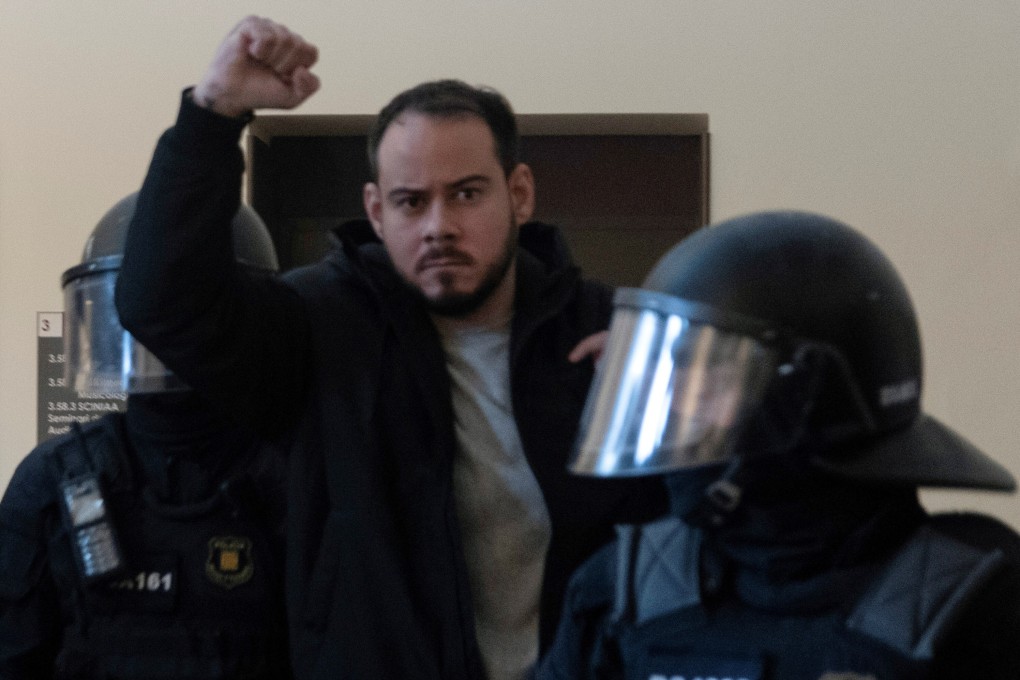Protests in Spain after police arrest Pablo Hasel, rapper convicted in free speech case
- Thousands take to streets to demand release of arrested rapper Pablo Hasel who barricaded himself in university
- Hasel convicted for glorifying terrorism, slander and libel against the crown and state institutions

Thousands of people protested across Spain in reaction to police arresting an outspoken rapper on Tuesday, after he was sentenced to prison for insulting the monarchy and glorifying violence.
Rapper Pablo Hasel, whose real name is Pablo Rivadulla Duro, had barricaded himself in Lleida University, 150km (90 miles) west of Barcelona, with dozens of supporters.
Hasel, who is known throughout Spain for his radical lyrics, had missed a deadline last Friday to surrender to police to serve a nine-month jail term handed down in 2018 – a sentence that caused an uproar in Spain and led the government to announce it would make free speech laws less restrictive.
During the rallies on Tuesday evening there were clashes between demonstrators and police in Barcelona, Valencia, Palma de Mallorca and Girona, among other cities.
In the centre of Barcelona, the protesters – around 2,000 according to media estimates – set fire to trash containers, among other things.

02:15
Violent protests in Spain after rapper Pablo Hasel arrested for anti-monarchy songs
They erected street barricades and threw stones, bottles and firecrackers at officers, chanting slogans such as “Freedom for Pablo Hasel” and “Death to the Spanish regime”.